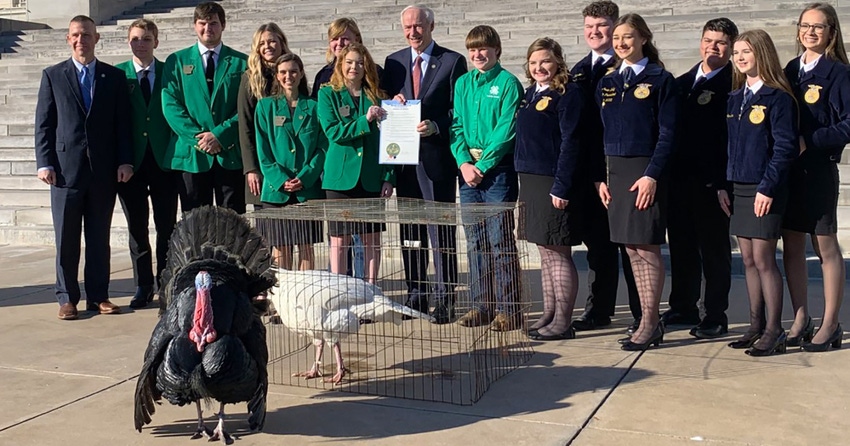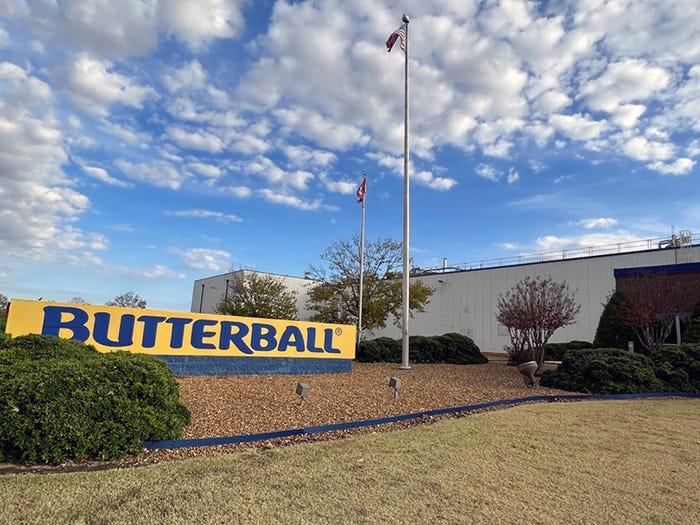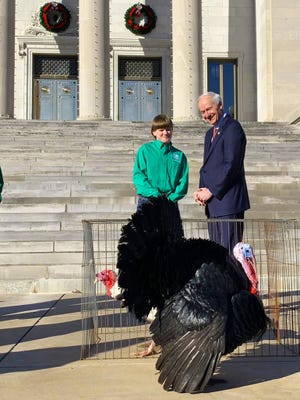
Turkey is the highlight of a traditional Thanksgiving feast, and the industry certainly impacts Arkansas agriculture. The state is ranked 3rd in the nation for turkey production, and the industry’s economic contributions are celebrated annually with a proclamation signed by the Governor.
According to the USDA National Agriculture Statistics Service, the state raised 27 million turkeys in 2021. That totals a massive 540 million pounds, valuing the Arkansas turkey industry at $443 million.
It takes a lot of people for that kind of production. According to The Poultry Federation, the industry creates and supports 17,538 jobs, paying an average of $48,800 in wages and benefits.
These jobs include farm production, processing operations, technology, marketing, and corporate careers. Each is essential in delivering the traditional Thanksgiving bird to your holiday table and providing nutritiously packed protein throughout the year.
Feeding the Nation
Arkansas is home to hundreds of turkey farms and several processing facilities and feed mills – most roosted in the northwest and central regions of the state. Commercial facilities are operated by Cargill and Butterball, and they provide a variety of turkey products – from pre-packaged whole turkeys to cooked deli meat.
Cargill operates a facility located in the city of Springdale – signed into state legislation as the “Poultry Capital of the World” by Governor Mike Beebe in 2013. The corporation has processed turkeys at that location since 1976.
 The Butterball facility in Jonesboro, Ark. produces cooked, ready-to-eat turkey deli breasts. (Whitney Haigwood)
The Butterball facility in Jonesboro, Ark. produces cooked, ready-to-eat turkey deli breasts. (Whitney Haigwood)
Butterball operates locations in Huntsville, Ozark, and Jonesboro and recently built a new feed mill located in Yellville. The corporation has processed turkeys in the state since 1974.
Marvin Childers, President of The Poultry Federation, reported that Butterball packs a big punch when it comes to whole turkeys sold during the holiday season.
“Across the entire U.S., every Butterball branded whole turkey bought at Thanksgiving, whether fresh or frozen, was processed right here in Arkansas,” he said.
Moreover, both companies charitably support local foodbanks each year by donating thousands of pounds of whole turkeys during the holiday season.
Turkey Week in Arkansas
Americans consume approximately 45 million turkeys during Thanksgiving alone, and Arkansas celebrates the state’s contributions each November with a proclamation signed by the Governor. A full week is set aside to observe the impact made by the state’s turkey industry.
In 2022, Governor Asa Hutchinson proclaimed November 20 – 26 as Arkansas Turkey Week, and part of the celebration includes the honorary reading of the proclamation. Of course, this event showcases a live turkey. Who can you expect to see this year?
 In 2021, Randy was one of the turkeys featured at the state capital during Arkansas Turkey Week for the reading of Governor Asa Hutchinson’s proclamation. (Scharidi Barber)
In 2021, Randy was one of the turkeys featured at the state capital during Arkansas Turkey Week for the reading of Governor Asa Hutchinson’s proclamation. (Scharidi Barber)
Meet Randy, a 3-year-old black tom turkey weighing in at 30 pounds. He is indeed a fortunate bird. 2022 will mark Randy’s second consecutive appearance for the event. He is scheduled to strut across the steps of the Arkansas State Capitol on November 21.
This magnificent award-winning bird belongs to Jackson Barber, a freshman student at Cabot Freshman Academy. Barber is also an active member of the FFA and the Lonoke County 4-H.
If you are familiar with the Barber family, you know they are advocates for Arkansas Agriculture. Barber is the son of Tom and Scharidi, both occupying roles with the University of Arkansas System Division of Agriculture.
Barber has shown Randy at various poultry events and competitions across the state, including the Arkansas State Fair. Randy even triumphed as Champion Turkey at the 148th Heart of the Ozarks annual meet, hosted by the American Poultry Association.
Considering the Highly Pathogenic Avian Influenza (HPAI) lately confirmed in Arkansas, Barber will take abundant caution to keep the prized bird safe for his upcoming festive appearance.
Preventing the Spread of Avian Influenza
In recent months, two incidents of the HPAI were confirmed in the state. Childers discussed the fatal poultry disease.
He reported that one case was a commercial flock of broiler chickens in Madison County. The other incident was a large backyard flock of 300 combined chickens, ducks, and guineas in Pope County.
“With poultry flocks, the avian flu spreads like wildfire. In a matter of hours, it can fatally debilitate an entire flock. To keep them from suffering and to prevent the spread of the virus, both flocks were put down humanely and in the timeliest manner,” he said.
The HPAI virus is detrimental to commercial, backyard, and small flocks. It is contracted through droppings from migratory waterfowl and domestic contamination from infected birds. To prevent the spread, flock owners should be vigilant in implementing strict biosecurity practices.
Childers also noted that while the virus is of great concern for poultry health, it is not a threat to human health.
Arkansas is taking ample measures to farms and facilities to prevent the spread of HPAI. These strict biosecurity practices will protect the poultry industry and ultimately ensure the classic main dish of holiday feasts nationwide.
About the Author(s)
You May Also Like






